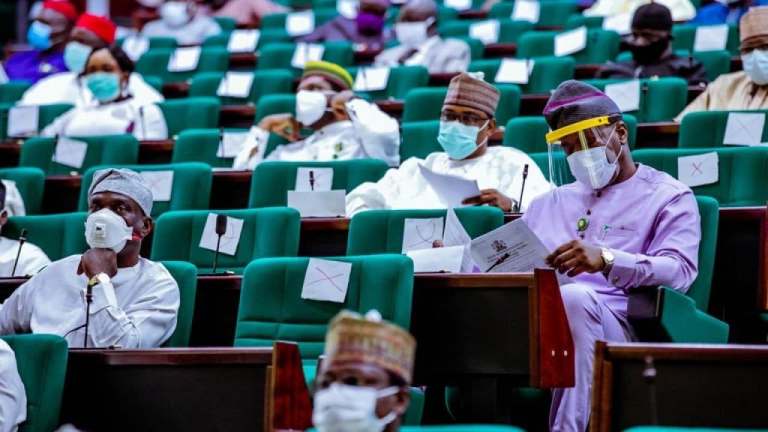Share!
The Chairman House of Representatives Committee on University Education, Abubakar Fulata, has said no primary school teacher should earn less than N250, 000.
Speaking at a one-Day National Stakeholders Workshop on the Development of a Roadmap for the Nigerian Education Sector (2023-2027) organized by the Federal Ministry of Education in Abuja on Thursday, the lawmaker said secondary teacher and lecturers should earn N500, 000 and one million naira respectively, if Nigeria wants to achieve quality education.
He said: “If you want quality education you must pay them to teach your children very well. Teachers must also be encouraged as it is obtained in the other climes.”
“The nation must declare a state of emergency in education. We must commit at least 25 per cent or 30 per cent of our national budget to education,” he said.
Speaking, the Minister of Education, Prof Tahir Mamman said: “Our education system is not connected to our society or our economy, we cannot say for certain that we are key contributors either locally or globally to the ideas which push societies forward.”
He said they cannot go on like this and must do something in line with the aspiration of the president.
While noting that the vision is there and the problem always has been meeting the gap between the vision and mission and the actual happening on ground, he said: “When we receive briefings from agencies we will see fantastic policies on education but the problem is our people do not see those policies on ground, they are not seeing the problem addressed and no longer seeing the value of sending their children to school.”
Prof Mamman said there is high number of unemployed graduates because the quality of education they are getting does not connect them to the industries and industries are complaining that they are churning out graduates that are unemployable
The minister said the reason for the workshop was to develop the roadmap and as such be seen as problem solving one, saying they have few days to come up with what they will use to reset the education sector from the basic to the tertiary.
The minister, however, urged the state governments to do their part so as they can address the challenges of the basic education, saying the federal government only has about 120 unity colleges and the majority rest on the states’ shoulders.
Earlier the Minister of State for Education, Dr Yusuf Tanko, said the contribution of Stakeholders at the workshop would help in preparing their children for the future and the development of the nation.
He said the recognition of the importance of education is yet to translate to tangible results that show that an educated person stands a better chance of living a fulfilled life.
“This disconnection between purpose and reality could be said to be responsible for inadequate attention to the sector, wrong perceptions of the relative importance of the different forms and types of education,” he said.
“I must also say that the inability of our youths to gain employment after going through the rigors of academia may be responsible for gradually building dis-interest in the pursuit of education,” he said.
No related posts.
